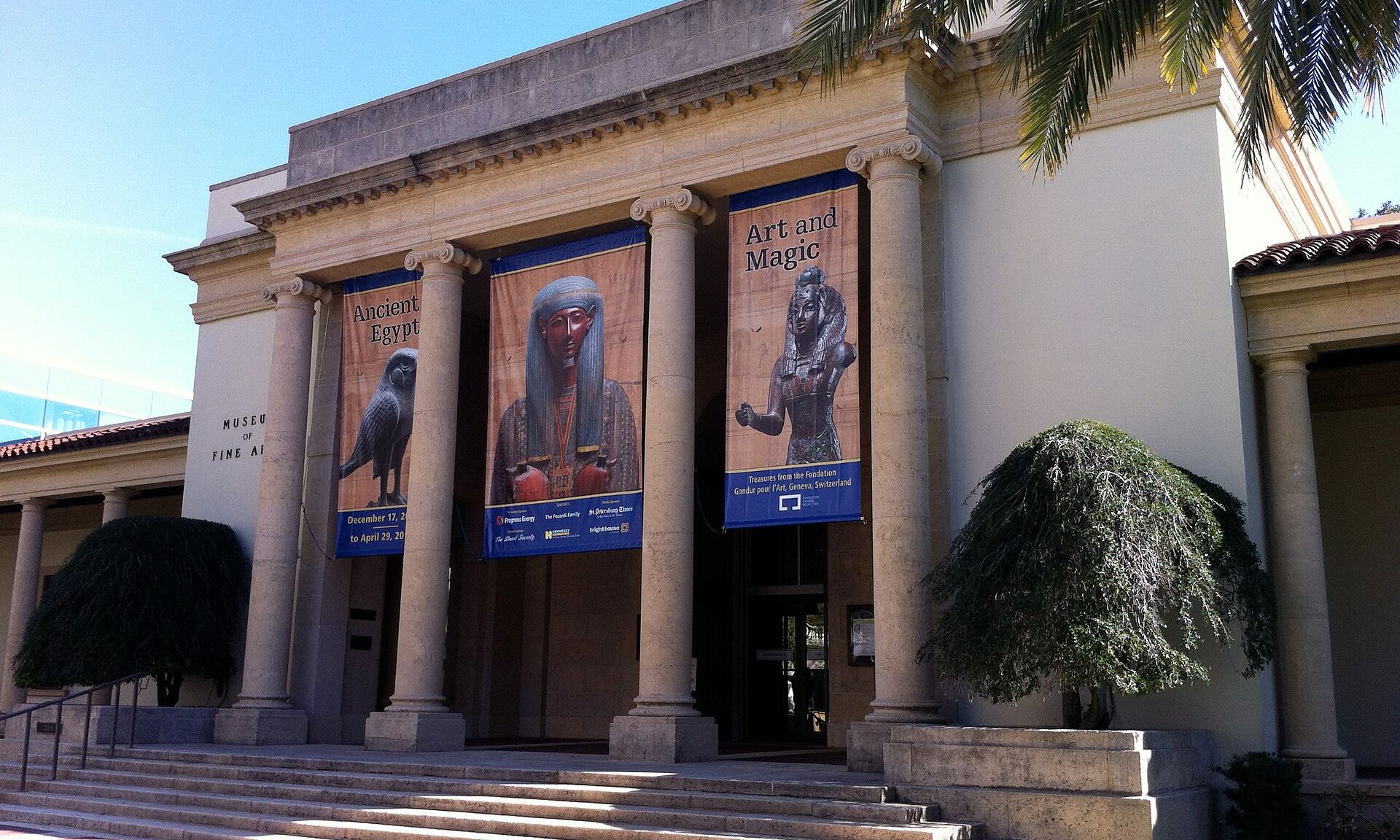The Museum of Fine Arts in St Petersburg Photo by Josh0211, via Wikimedia Commons
The murky question of what museums should do about artefacts with incomplete provenance documentation is at heart of a scandal at the Museum of Fine Arts (MFA) in St Petersburg, Florida, cost curator Michael Bennett his job. He was fired after staff at another institution raised concerns about the origins of objects in From Chaos to Order: Greek Geometric Art from the Sol Rabin Collection, a travelling exhibition of Greek antiquities that Bennett curated, as The New York Times reported.
The exhibition, which displayed works from the Geometric period in ancient Greece (around 900BCE to 700BCE), had been headed for Denver Art Museum after stops at the Rollins Museum of Art near Orlando and the Gibbes Museum of Art in Charleston, South Carolina. But its tour was ultimately halted by staff at the DAM over concerns that some of the artefacts lacked proper, detailed provenances. Among the objects in the show, all on loan from collector Sol Rabin, were several that had been purchased from dealers who are known to have handled stolen objects.
Staff at the DAM may have been especially wary of showing any objects lacking clear provenance as the institution has been mired in an ongoing scandal concerning its collection of antiquities from Cambodia and other countries in Southeast Asia. The museum recently deaccessioned four objects from its collection that were connected to antiquities smuggler Douglas Latchford and returned them to Cambodia.
“I am sure you are familiar with how the changing legal and ethical standards and perceptions of collecting and displaying antiquities are front and center for many world culture museums today, including ours,” Christoph Heinrich, the DAM's director, wrote to representatives at the MFA in correspondence quoted by the Times, emphasising that his museum had “experienced recent negative press for a small number of our legacy collections and associations with red flag dealers”.
Following this exchange, Bennett was put on leave; he was fired by the MFA a month later. While museum officials have not given an official reason for his dismissal, a letter obtained by the Times from the museum’s lawyer to Bennett’s lawyer stated, “If cause were required to terminate Dr. Bennett’s employment, MFA would have more than sufficient grounds to do so, as Dr. Bennett well knows.”
Robert Drapkin, an MFA board member, said he believed provenance issues factored into the decision to terminate Bennett, but were not the sole reason.
The best-practice guidelines most US museums have been following in recent decades—formulated and adhered to via membership in and accreditation by organisations like the American Alliance of Museums, in compliance with international law—maintain that objects without detailed provenance that left their country of origin before 1970 are problematic. Most of the 57 items displayed in From Chaos to Order lacked evidence that they had left Greece by 1970.
Bennett previously faced a provenance scandal in a former position in the Cleveland Museum of Art, where his controversial acquisition of a bronze statue of Apollo from private hands with scant documentation drew scrutiny in 2013.

